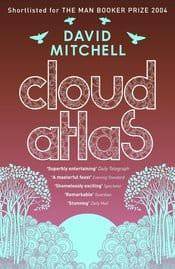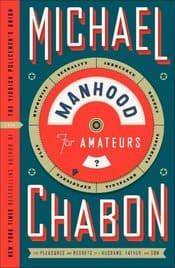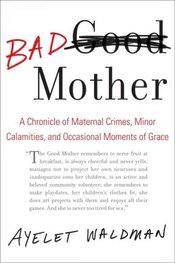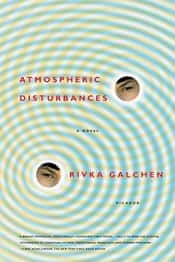 Book clubs have a bad reputation among people who like to read, mocked for being a nice excuse to sit with your friends and drink wine, but certainly not an opportunity to talk about books with fellow bibliophiles. At least, this is what I thought before I joined one. I couldn’t have been more wrong, and now, more than four years later, my book club meetings are my favorite monthly activity. Much of this, I’ll admit, has to do with the lovely women in my club who—I’m sorry—I can’t share with you. Beyond that, though, there are some factors that have contributed to my club’s success as a genuine space to talk about great books. Here are a few tips.
Book clubs have a bad reputation among people who like to read, mocked for being a nice excuse to sit with your friends and drink wine, but certainly not an opportunity to talk about books with fellow bibliophiles. At least, this is what I thought before I joined one. I couldn’t have been more wrong, and now, more than four years later, my book club meetings are my favorite monthly activity. Much of this, I’ll admit, has to do with the lovely women in my club who—I’m sorry—I can’t share with you. Beyond that, though, there are some factors that have contributed to my club’s success as a genuine space to talk about great books. Here are a few tips.
1. Keep a schedule.
The best way to ensure that your book club meets consistently every month is to choose a fixed day for your meetings—the second Saturday, for example, or the third Tuesday. Start with whatever night will be easiest for everyone to attend, and from there, don’t worry about accommodating everyone’s schedules every single month. Attendance will vary, but people will be more apt to come if meetings are fixed, and you won’t have to hassle with proposing various dates each month and trying to find something that works for everyone.
If you’re going to rotate hosting duties each month, as many clubs do, it’s also a good idea to plan the schedule 6 months or so in advance. This will give each host time to plan a meal (if you have dinner), and choose a book. If you decide to meet out, make sure it’s clear who will be responsible for choosing a location and the book for each month.
2. Agree to some guidelines for choosing books.
 These guidelines should reflect the general values of the book club. If, for example, you are all voracious readers who love to stay current with new releases, you might set a rule that any book chosen must have been released within the past 6 months. In my book club, we want to make sure everyone has ample time to read the book, and easy access to cheap or free copies of the books. We therefore have a 300-page limit on choices, and a rule that all books must already be out in paperback and reasonably accessible at the local library. Occasionally we break these rules, but not without checking with the entire group first. We read Cloud Atlas by David Mitchell, for example, which is longer than 300 pages. It was worth it, though, as the book provides a lot of fodder for conversation, and was generally well liked.
These guidelines should reflect the general values of the book club. If, for example, you are all voracious readers who love to stay current with new releases, you might set a rule that any book chosen must have been released within the past 6 months. In my book club, we want to make sure everyone has ample time to read the book, and easy access to cheap or free copies of the books. We therefore have a 300-page limit on choices, and a rule that all books must already be out in paperback and reasonably accessible at the local library. Occasionally we break these rules, but not without checking with the entire group first. We read Cloud Atlas by David Mitchell, for example, which is longer than 300 pages. It was worth it, though, as the book provides a lot of fodder for conversation, and was generally well liked.
At the same time, we don’t have any rules regarding form or genre, and so as a result we have read novels, short stories, and non-fiction over the years. If your members have more particular interests, you could limit yourselves to a specific category or genre, or even a certain time period, though beware that this could get boring after a while.
3. Decide how you want to talk about the books.

 While this might seem a bit too much like an English class, the best way to ensure that your book club actually discusses the books is to make a plan for doing so. In my club, it is up to the host to nudge us toward conversation, usually once we’ve had ample time to socialize and have started eating dinner. The host will begin with an explanation of why she chose the book and say a bit about what she thought of it. From there, we go around the circle, all sharing our thoughts and giving the book a ranking of 1-5 stars. After this initial round, you’ll notice that conversation can vary quite a bit. Reading Animal, Vegetable, Miracle by Barbara Kingsolver could lead to a lengthy conversation about food politics; Manhood for Amateurs by Michael Chabon inspires talk of childhood and parenting (and pairs nicely with the memoir Bad Mother by Ayelet Waldman, Chabon’s wife).
While this might seem a bit too much like an English class, the best way to ensure that your book club actually discusses the books is to make a plan for doing so. In my club, it is up to the host to nudge us toward conversation, usually once we’ve had ample time to socialize and have started eating dinner. The host will begin with an explanation of why she chose the book and say a bit about what she thought of it. From there, we go around the circle, all sharing our thoughts and giving the book a ranking of 1-5 stars. After this initial round, you’ll notice that conversation can vary quite a bit. Reading Animal, Vegetable, Miracle by Barbara Kingsolver could lead to a lengthy conversation about food politics; Manhood for Amateurs by Michael Chabon inspires talk of childhood and parenting (and pairs nicely with the memoir Bad Mother by Ayelet Waldman, Chabon’s wife).
4. Don’t be afraid to disagree.
 Books that inspire heated discussion are more fun in a book club, and you don’t get heated discussions without some disagreement. If you are the host, don’t take it personally if a handful of your guests didn’t like the book. If you’re a participant, don’t be afraid to give your honest opinion. My club was split in its feelings for Atmospheric Disturbances by Rivka Galchen, though everyone seemed to agree that the book was improved through the conversation. We also disagreed over The Other Wes Moore, a work of nonfiction by Wes Moore; here our disagreement centered on whether the form and structure of the book best fit the story.
Books that inspire heated discussion are more fun in a book club, and you don’t get heated discussions without some disagreement. If you are the host, don’t take it personally if a handful of your guests didn’t like the book. If you’re a participant, don’t be afraid to give your honest opinion. My club was split in its feelings for Atmospheric Disturbances by Rivka Galchen, though everyone seemed to agree that the book was improved through the conversation. We also disagreed over The Other Wes Moore, a work of nonfiction by Wes Moore; here our disagreement centered on whether the form and structure of the book best fit the story.
5. Check your judgments and insecurities at the door.

 Think you’d never like reading crime fiction? Our club loved What the Dead Know by Laura Lippman. Too embarrassed to pick up a romance novel? Sure that you’d never have anything to say about an unconventional novel like Paul Harding’s Tinkers or Brian Doyle’s Mink River? You might be surprised, when you can talk about it with a group of your friends. Our host one month had everyone choose their own romance novel to report on, which led to an interesting conversation about key aspects of the genre. Your book club can be a fun way to share some of your favorite books, and to try out some books that you’d otherwise never read.
Think you’d never like reading crime fiction? Our club loved What the Dead Know by Laura Lippman. Too embarrassed to pick up a romance novel? Sure that you’d never have anything to say about an unconventional novel like Paul Harding’s Tinkers or Brian Doyle’s Mink River? You might be surprised, when you can talk about it with a group of your friends. Our host one month had everyone choose their own romance novel to report on, which led to an interesting conversation about key aspects of the genre. Your book club can be a fun way to share some of your favorite books, and to try out some books that you’d otherwise never read.
Let us know in the comments what YOUR book club is reading!





These are great suggestions for a successful bookclub. If I ever get around to starting one I’d incorporate them.